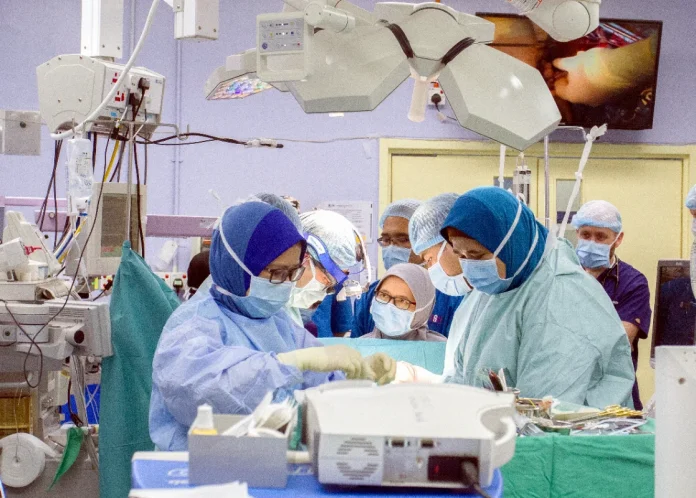PETALING JAYA: Health Minister Datuk Seri Dr Dzulkefly Ahmad has pledged to overhaul the allocation of healthcare personnel nationwide, promising major reforms over the next year to ensure hospitals and clinics are staffed more efficiently.
The move comes alongside a morale boosting shake-up for medical workers, including a 33% to 43% hike in the On-Call Duty Allowance for medical and dental officers, the first increase in 14 years, estimated to cost RM120 million annually.
Speaking at the Dewan Rakyat yesterday, Dzulkefly acknowledged the heavy demands on Malaysia’s medical workforce, from senior consultants and specialists to medical officers, nurses and support staff, and said the ministry is leveraging real-time data on staffing needs, supply and demand to respond more accurately to workforce gaps.
“Even when positions are open, personnel may not be available, and contract doctors are sometimes brought in to fill gaps.
“Identifying the baseline is crucial to determine shortages and supply-side solutions.”
He added that maldistribution of staff and specialists remains a challenge but is being actively addressed to ensure fairer placement across healthcare facilities.
“If it is not equal, it must at least be equitable – that is the challenge we are tackling.
“I believe that over the next year, we would be able to address this comprehensively through the efforts of our development, planning and digital readiness divisions,” he said, adding that boosting morale and staff welfare would continue alongside the allowance increase.
He said the hike, effective Oct 1, recognises the vital role of medical and dental officers.
“We would like to express our highest appreciation to the prime minister for this increase. The ministry has also issued a circular dated Nov 4 allowing eligible healthcare personnel to claim the new allowance rate for October 2025.”
Regarding on-call duties, he said staffing and scheduling decisions are determined by service needs, workload and case complexity.
“Regular monitoring ensures staffing levels are sufficient while prioritising the welfare of medical personnel.
“On-call duties may be active or passive depending on operational needs, workload and case complexity.”
Dzulkefly added that the move is part of ongoing efforts to improve working conditions and support for frontliners, reinforcing the government’s commitment to a motivated and well-compensated healthcare workforce.
He also highlighted broader reforms in healthcare service delivery.
“We are developing the national healthcare system to truly give it meaning, what could be termed as modernising our system and healthcare delivery.
“We are enhancing and streamlining the system across all facilities, including 150 hospitals and more than 3,300 clinics nationwide.”
He said a key part of the reform is digitalisation, adding that the National Electronic Medical Record system under the “One Citizen, One Record” policy would improve operational efficiency, reduce the workload for specialists and doctors and enhance clinical accuracy.
“This ensures clinical decisions are not only faster but also accurate and safe, which is a central focus of the ministry.”







